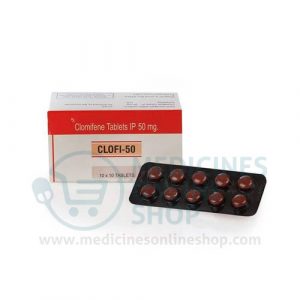Human chorionic gonadotropin (HCG) is a polypeptide hormone that is generated by the syncytiotrophoblast, a component of the fertilized egg after conception. It is a polypeptide hormone that has a role in the normal development of egg in a women’s ovary and stimulates the egg release during ovulation.
HCG has a wide role in treating infertility in women and increases sperm count in men. It is available as a pack containing the sterile lyophilized powder and the solvent (bacteriostatic water).
The ailments it is used for
Human chorionic gonadotropin hormone is given in the below listed conditions such as:
- Treats infertility in women
- Increases sperm count
- It is used in young boys when their testicles have not dropped down into scrotum normally
Understanding the drug Human chorionic gonadotrophin:
Human chorionic gonadotropin is a hormone that is prescribed in infertility, increases sperm count and in pituitary gland disorder.
How it works?
Human chorionic gonadotropin is a water soluble glycoprotein obtained from the urine of pregnant women. HCG comprises of two sub units alpha and beta sub units. Single injection of HCG induces ovulation between 38 and 40 hours. HCG is an analogue of luteinizing hormone (LH). Luteinizing hormone along with Follicle stimulating hormone has a role in development and maturation of normal ovarian follicle and in mid cycle LH surge initiates ovulation. HCG plays the same role of LH in body and stimulates ovulation process in infertile woman. HCG stimulates Corpus Luteum of the ovary to produce progesterone.
In men, it also stimulates the production of testosterone and increases sperm count in men. HCG acts on interstitial cells of the testis that leads to the production of androgens.
When should you avoid it?
You should not take Human chorionic gonadotropin if you:
- Are allergic to Human chorionic gonadotropin
- Have a thyroid or adrenal gland disorder
- Attain premature puberty
- Have heart related problems
- Have prostate related problems
- Have kidney disease
- Have epilepsy
- Have migraine
- Have asthma
- Have liver disease
- are pregnant or planning to become a pregnant
- are breast feeding
How much to take?
The dosage is solely decided by the Doctor after assessing your condition and various factors such as age, gender and body weight. One can’t fix the dose as it varies from patient to patient. Always take the dose prescribed by the Doctor.
How to take?
Human chorionic gonadotropin is taken exactly as prescribed by your doctor. It is given as an injection under the skin or muscle. Pharmacist or doctor will let you know the proper way of drug administration.
When to take?
Use this drug the same way as prescribed by your doctor. Do not use it in larger amounts or for longer than recommended. Follow the directions on your prescription label.
For how long should it be taken?
Take the medicine as long as recommended by the Doctor. Always ask the doctor before stopping the intake of the drug.
What if you take too much (overdose)?
If overdose, immediately consult with your concerned doctor. Take medical help as soon as possible if you encounter any unusual symptoms.
What if you miss the dose?
Try to take the medicine at the same time each day; this reduces the chances of missing dose. Talk to your Doctor if you miss the dose. Don’t double up the dose in order to compensate with the previous one.
What are the side effects?
Every medicine show some side effects, same way this drug also have some undesired effects associated with it. Human chorionic gonadotropin shows common side effects such as:
- Restlessness
- Depression
- Headache
- Breast tenderness
- Pain, swelling at the site of injection
- Nausea
- Constipation
Some serious and rare side effects that need serious medical consideration are as stated below:
- Breath shortness
- Weight gain
- Diarrhea
- Nausea
- Vomiting
- Swelling of the hands or legs
- Extreme pelvic pain
Are there any possible drug interactions?
Always inform your doctor about the drugs you are taking till date. Give a complete list of prescription or non prescription drugs and any other disease conditions. This way, doctor is able to decide and give you the list of drugs and other things that may interact with HCG.
What are the things to be taken care of?
- Always take the medicine as per prescription
- Don’t use the expired drug
- Don’t use the drug if there is any discoloration of the lyophilized sterile powder
- Don’t self inject this medicine without knowing the proper way of administration
- Always use sterile needles and syringes
- Don’t share your medicine with anybody, even if they have the same symptoms
- Always store the medicine at the room temperature and away from moisture, heat and light
- Consult with your pharmacist about the proper disposal of the drug
- Keep a complete record of all the medicines you are taking along with this medicine




